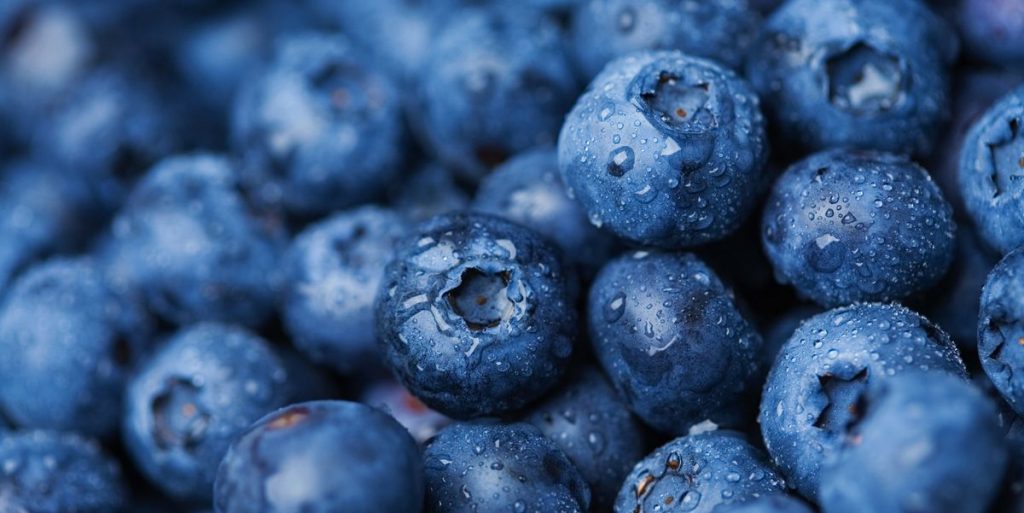September 2021
I don’t know about you but I LOVE a blueberry or two! They are so flavourful and pop in your mouth when they are so fresh and ripe! I fell really in love with them when we went to the Auvergné a few years ago – and seriously Blueberries were used in pretty much everything, including the most delicious Saucisson!
They are not cheap – grant you but they do last as a few everyday is better than none in my very humble opinion, and when the season does start coming to an end and they get pricier – I go for the frozen ones, therefore always to hand!
At the moment the ones in the local shops are from the North of France which is great – less everything really….Blueberries are usually available year-round in most supermarkets, although there “peak season” is summer but buying fresh and frozen, either option contains high levels of antioxidants and nutrients.
So why the big deal about this humble blue fruit that makes me happy? Well it has a plethora of goodies within;
Blueberries are high in antioxidants that may help protect your skin from damage and promote skin healing.
Eating 1 cup (148 grams) of blueberries per day is linked to improved heart health and circulation, which helps deliver important nutrients and oxygen to your skin.
Blueberries are high in two antioxidants — vitamin C and anthocyanin — that may help your body build more collagen, a protein that gives your skin structure and plumpness.
When skin is damaged, it experiences high levels of free radicals.
Eating blueberries can support wound healing due to its high levels of antioxidants and vitamins C and K.
Blueberries are available year-round and equally nutritious fresh or frozen. You can also try many skin care products that contain blueberry extracts, though more research is needed to prove their benefit.

Fight premature aging
Blueberries are high in antioxidants, which are natural compounds that help fight cell-damaging free radicals. In particular, they’re high in plant compounds known as anthocyanins, which have strong antioxidant properties and give blueberries their natural purple-blue hue.
As you age, your body’s ability to fight off free radicals declines. This leads to higher free radical levels, which can wreak havoc on your cells, especially your skin cells.
Exposure to Ultra light from the sun or tanning beds, cigarette smoke, pollution, and a poor diet can increase free radical production in the skin. When there are more free radicals than antioxidants, skin cells begin to weaken and show signs of aging.
In particular, collagen and elastin are two proteins that give your skin structure. Poor lifestyle habits can accelerate damage to these proteins, leading to skin sagging and an increase in fine lines and wrinkles.
However, a diet high in antioxidants, such as those found in blueberries, is associated with fewer signs of aging and better skin quality due to their ability to scavenge free radicals in the skin and promote healing.
Along with other antioxidant-rich fruits and vegetables, eating blueberries can increase your total antioxidant intake to help reduce premature aging. Improve circulation.
A diet high in blueberries is associated with better heart health and circulation, which is important for skin health>
Your heart pumps blood throughout your body to deliver oxygen and nutrients to cells, as well as to remove waste from them.
Your skin is exposed to the external environment, which typically involves UV rays, pollution, cuts, and bruises, and it needs nutrients and oxygen to heal and repair
Eating 1 cup (148 grams) of blueberries per day can help improve your body’s ability to send nutrients and oxygen to your skin and other cells, allowing for quicker and more efficient cell turnover, and ultimately, healthier skin.
Therefore, eating a nutritious diet rich in blueberries can help provide your skin the tools it needs to rejuvenate.
Naturally boost collagen
Blueberries are high in anthocyanin, which may support collagen synthesis.
In a few skin sample studies, applying anthocyanin from berries to the skin reduced collagen breakdown and increased overall collagen production. In another study, rats fed a diet high in blueberries had greater collagen production in their
What’s more, 1 cup (148 grams) provides 16% and 19% of the daily vitamin C needs for men and women, respectively. Vitamin C plays a vital role in collagen production, which is important for strong, healthy skin. It also acts as a natural antioxidant to protect the collagen in your skin from damageAlthough some other fruits are higher in vitamin C, blueberries are very versatile and can be added to many dishes, making it easy to meet your daily needs. Support wound healingIf you have a cut, minor burn, or blemish, eating blueberries may help it heal.
Blueberries are high in vitamins C and K, both of which are important for wound healing. One cup (148 grams) of blueberries provides a minimum of 16% and 24% of your daily needs for vitamin C and vitamin K, respectively .Additionally, when the skin is damaged, it experiences acute inflammation and oxidative stress, which is when free radicals outnumber antioxidants. The high antioxidant content of blueberries can help fight free radicals, potentially helping speed the healing process.
However, never apply blueberries or other foods directly to open cuts or burns, as this can lead to a bacterial infection.
Other potential benefits.
Though more quality evidence is needed, blueberries may provide other skin benefits May reduce acne-related inflammation
Acne is a common inflammatory skin condition resulting from blocked pores, leading to skin discoloration and/or redness, swelling, and inflamed bumps called pustules, which are also known as pimples.
Naturally sweet and a good source of fibre, blueberries are a source of low glycemic carbs, which are linked to lower acne-related inflammation. Alternatively, a high glycemic diet is associated with higher rates of acne While no direct research connects blueberries to acne reduction, a diet high in antioxidants and fibre — both of which are found in high amounts in blueberries — is associated with decreased inflammation and may reduce acne-related swelling and skin discoloration
Therefore, opting for blueberries can satisfy your sweet tooth and give you a boost of nutrition to support your skin. However, avoid applying blueberries directly to your skin, which may make acne worse.
Support a healthy gut
Fibre is important for a healthy gut microbiome, which is a group of bacteria that live in your gut. Emerging research is beginning to show a close relationship between gut and skin health.
In particular, bacterial dysbiosis, which is an imbalance of bacteria in the gut, may be linked to skin conditions like acne, psoriasis, eczema, rosacea, and premature aging.
Blueberries are an excellent source of fibre, containing almost 4 grams in a single cup (148 grams). As such, they help support a healthy microbiome and potentially healthy skin. May help with psoriasis and eczemaPsoriasis and eczema are both inflammatory conditions of the skin that present as discolored, itchy patches. Notably, people with these conditions have also been found to have lower antioxidant levels.
Although more research is needed, an antioxidant-rich diet is believed to play a role in reducing psoriasis and eczema flare-ups by lowering oxidative stress.
Here are some easy ways to add blueberries to your diet:
Eat them plain
Add them on top of a salad.
Pair them with Greek yogurt.
Mix them into a fruit parfait.
Make blueberry jam.
Add them to smoothies.
Top cereal or oatmeal with them.
Try experimenting with blueberries in your recipes to add a boost of nutrition.
They’re high in fibre, anthocyanins, and vitamins C and K, which may help reduce skin inflammation and promote wound healing.Despite their promising benefits for your skin, more research is needed to understand their direct role in skin health. Nonetheless, eating a diet rich in blueberries is always a healthy and delicious choice.
If you have any great recipes that use Blueberries – please feel free to share!

Disclaimer As always these articles are sourced from various websites and coursework I have studied and completed . If you have any health issues or allergies then please make sure you do your research before adding to your diet. These articles are for wellbeing and not to replace any medication you maybe on. I am not a doctor – but a qualified Holistic Nutritionist who enjoys sharing love of nutrition including any of the health benefits of food sources and Essential Oils….



